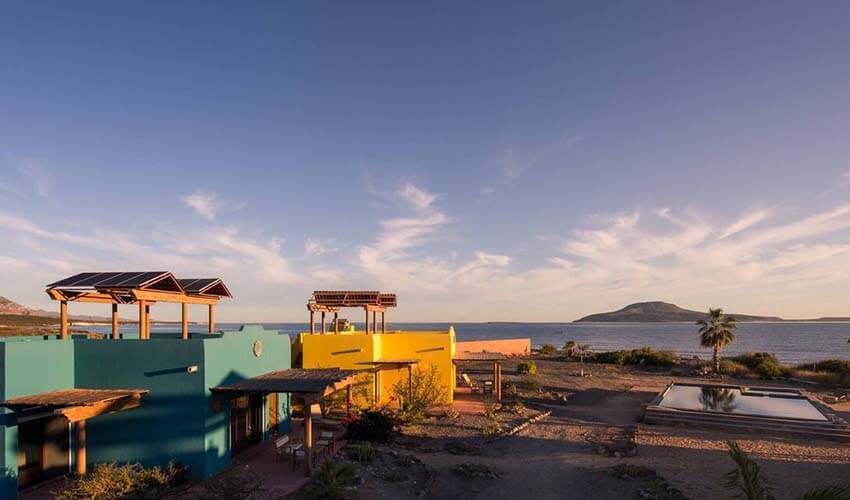So who among us foreigners in Mexico think “outside the box” as far as building a life here? Recent articles I wrote about Camille E. Torok de Flores in Guanajuato and the Hoveys in Sonora got me interested in seeking out those with an entrepreneurial spirit.
So I put out a call on Facebook, and the result has been overwhelming! There will be a series of articles. An e-book is a definite possibility.
There seem to be two self-employment paths in Mexico: working for yourself in a business registered in Mexico and the digital nomad route. The two are distinct because the first carries many more requirements with Mexican authorities.
Digital nomads, since their income is not derived in Mexico, are often here on a tourist visa. This article focuses on those who need to jump through more Mexican hoops.
Googling “starting a business in Mexico” results in a number of articles, websites and services in English since it is a popular topic. But what became clear to me is that these resources mostly cater to entrepreneurs with significant capital to invest from the get-go.

Sure, there is the stereotype of “rich foreigners” and, of course, it is far more profitable to advise a rich person than a poor one. But what about those of us who aren’t rich? We do open businesses, and our enterprises have a lot in common with immigrants all over the world.
Many of these expat entrepreneurs are people who came to Mexico to live or decided to stay — well, simply put, they fell in love and married.
Such immigrants get permanent residency and work visas and can have the economic support of their new family as they acclimate to life in Mexico. These same Mexican families also serve as windows into the wider community, often with relatives who own businesses themselves.
Several people I have interviewed stated that they never would have considered opening a business in Mexico without that. Some even have their businesses in their spouse’s name or the name of someone in their Mexican family to avoid legal and bureaucratic hassles.
Those who do not come to Mexico initially because of a spouse do so because of a job, study abroad or vacation. They fall in love with Mexico and either look for a way to support themselves here or decide to change careers.
Such immigrants need to do more to get the right visas to stay and work, whether or not it is tied to the new business. They generally do not have significant economic resources to draw upon from their home country either because of their youth and/or because of having an alternative (often nomadic) lifestyle.

In both cases, the start-ups result from either falling into a business opportunity or because the person is not interested in teaching English or doing online work. There are those who have businesses (legal or not) because they do not have many options.
These can include the spouse of someone here for work, a political refugee or a Dreamer deported “back home” to Mexico. Despite having Mexican citizenship because of birth, this latter group — who may or may not speak Spanish due to being raised since childhood in the United States — often finds itself with few employment options here, outside of working for call centers that need fluent English speakers.
It is striking how similar the stories here parallel those of immigrant business owners the world over. Most start businesses that have some relationship to their country of origin — import-export, ethnic restaurants, specialty shops or tourism and services for other foreigners adjusting to life in Mexico.
The only industry that may be fairly unique is that of language instruction — schools and classes that cater to the local Mexican population.
Expat business owners face many of the same issues that native ones do, in particular complying with local laws and regulations. Only three of my interviewees had all of their paperwork complete before starting operations, they said, with most coming into compliance over time.
The issue is economics: compliance is expensive, and profitability is not assured. Several respondents told me that their local and state governments have grace periods (official and unofficial) to allow a new business to operate while they do the paperwork.

Those taking advantage of this stated that they probably came into compliance quicker than their Mexican counterparts because they face more legal and social scrutiny as foreigners.
But there are some aspects unique to being an entrepreneur in Mexico. Opening a business here does not automatically give you the right to work in it. Work visas are a separate issue. Obtaining permission to work in a profession common in Mexico (like carpentry) may be difficult to do as a foreigner.
Being connected to the community is absolutely crucial. Even if you are not competing with those around you, a foreign business owner can be unwelcome. Various business owners living in the center and south of the country report neighbors being “jealous” of their businesses, even if their spouse is a local.
This seems to be less of an issue in the north, likely in part because of the area’s long socioeconomic connection with the United States.
Corruption? A definite maybe. It depends on where you set up shop and the industry you work in. Be aware that retail businesses in cities can be vulnerable to protection rackets.
Again, it is important to know the neighborhood and your neighbors.

On the plus side, some business owners report that the lower cost of living in Mexico is an advantage. Lower living costs can give the owner more time and more flexibility to find the business’s footing. Another lower cost is that of professionals such as accountants and lawyers. This can offset the greater need to use such services.
Of course, the main risk for any new business is running out of money before you see a profit.
It is also important to know if owning a business will cause issues with your home country. For example, Americans make up the majority of foreign business owners and investors in Mexico, but unlike citizens from other industrialized nations, Uncle Sam requires the reporting of all foreign income.
The deductible for “foreign-earned income” is high enough to offset anything most small businesses earn, but you need to check if you have to pay self-employment taxes, especially if you are not enrolled in Mexico’s social security net.
Also remember that when you open a Mexican bank account, you must give the institution your United States taxpayer ID information.
Stay tuned for more articles about common business types, digital nomading in Mexico and even a few outliers!

If you have stories to share about your business, please contact me at leigh.thelmadatter@mexiconewsdaily.com.
Leigh Thelmadatter arrived in Mexico 18 years ago and fell in love with the land and the culture in particular its handcrafts and art. She is the author of Mexican Cartonería: Paper, Paste and Fiesta (Schiffer 2019). Her culture column appears regularly on Mexico News Daily.
